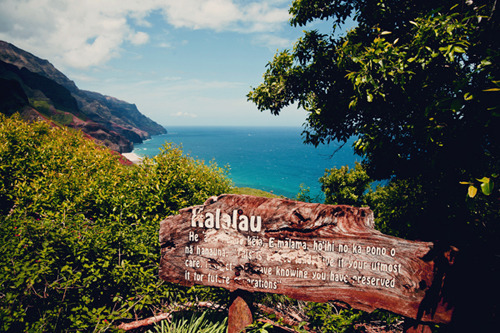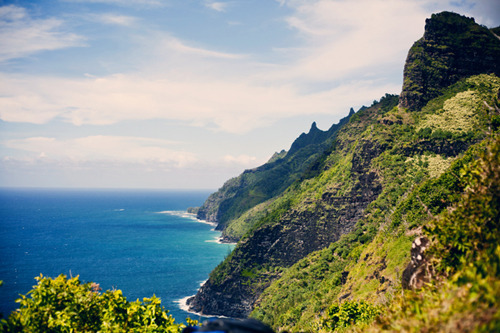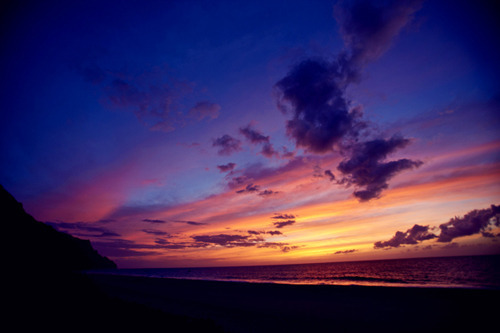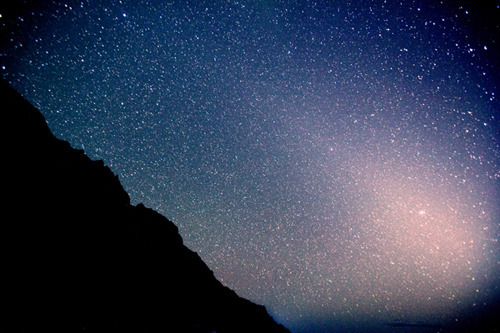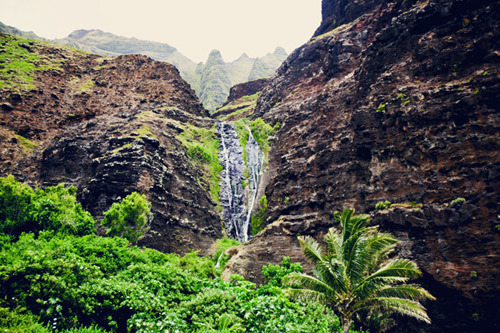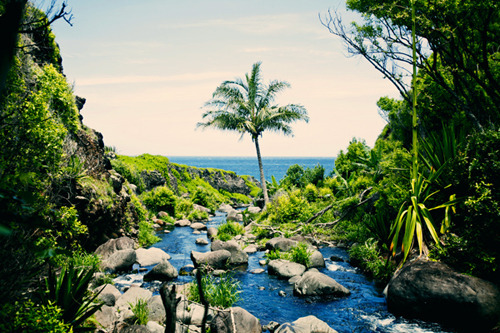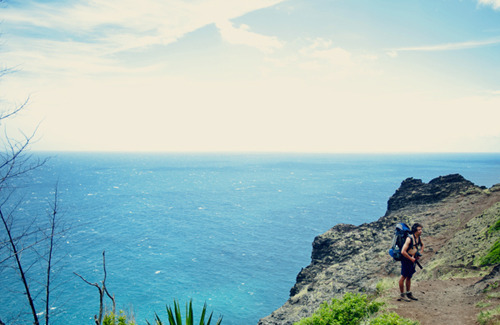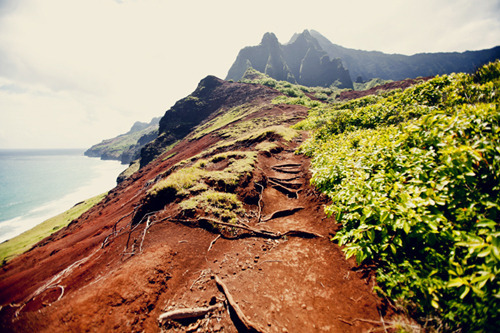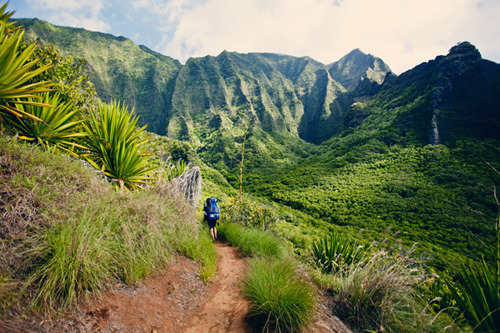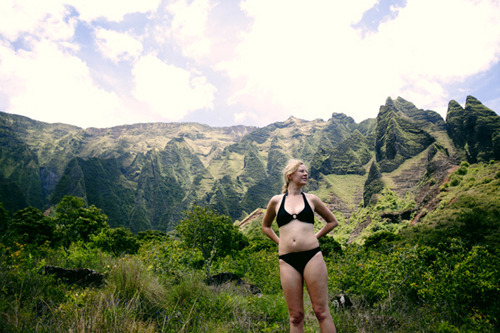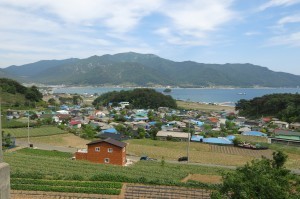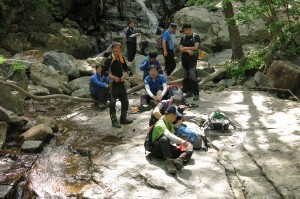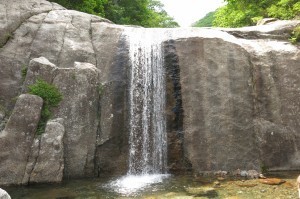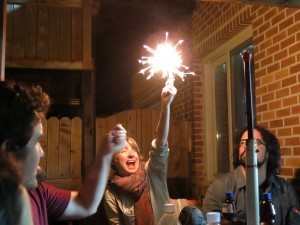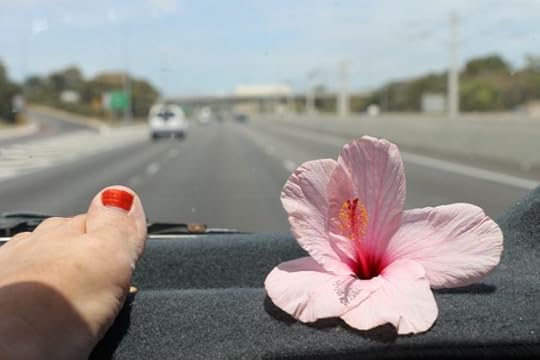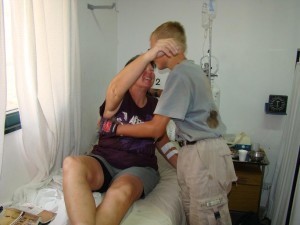Rolf Potts's Blog, page 59
June 27, 2013
Travelling China by Bus: useful tips
Vagablogging :: Rolf Potts Vagabonding Blog
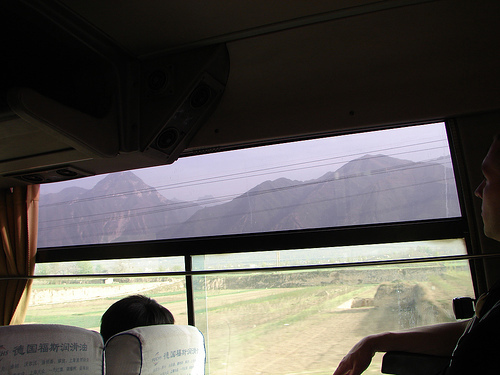
Picture credit: Flickr/Helga’s Lobster Stew
China. A place that changes so much and so fast, one can never know how it’s going to look next.
However, there are always a few rules of thumb for first time travelers to the Middle Kingdom, especially for those who cannot speak any Mandarin Chinese. I am going to give you some helpful tips to move around the country by bus. Such a fantastic, cheap and sometimes cramped and scary way to get around China!!
The Bus Station: mayhem
Yep, it usually is. Bus stations are generally crowded and full of touts pushing you in every direction and shouting in Mandarin… and generally, the smaller the town, the louder they will scream and push! But do not worry, they are only trying to help you to get your ticket… Bus stations in China might seem quite daunting places, at times: huge and crowded, or small and deserted, you’ll get both sides of the spectrum. The important thing is to keep calm, know where you are going, and make sure you get the destination name written in han zi (Chinese characters) on a piece of paper, so that it will be easier to purchase a ticket or ask for directions.
Types and kinds of bus
Being China a country of variety and contrasts, its bus system aptly reflects this situation. You can get a ride on a vehicle that is as close as a luxury coach with a/c and reclining seats, or a rattler that was used to ply busy city routes. Usually these kinds of older, scarier vehicles shuttle people between major cities and smaller towns or villages. Do not worry if the engine shrieks and the exhaust puffs black smoke, as usually the driver knows how to handle it. This kind of buses is usually smaller, and when full, it is not uncommon to end up seating in the aisle, on a plastic stool or an emergency seat which slides out from the side. Your journey will definitely be jam packed and uncomfortable, but this is a must do Chinese experience. Medium length routes such as Kunming to Dali in Yunnan use this kind of buses over their 4 hours journeys, so make sure you get a real seat before boarding, or wait for the next connection, usually quite frequent.
Night Travel via Bus
Let’s put it straight, the train can take much longer than the bus, and although sleeper trains generally offer a leisurely paced way of travel, a traveler’s time can be limited. Sleeper buses are a pretty comfortable and fast way to get from point A to point B overnight without particular hassle, and in decent comfort. To my knowledge, the kind of sleeper buses found in China are unique in the whole East Asia: they are organized in three rows of small bunk beds (one central and two next to the windows) and fit around 35 people per coach. The berths are soft and comfortable for small people, but if you are a normal sized Caucasian, you might feel like you have to sleep in a go-kart. But again, this is another must-do experience in China. There is no separation between berths, so it is quite obvious that getting close to your neighbor’s sounds and smells will be part of the experience. Sometimes, ear-plugs are recommended. Most of these buses ply longer routes, – such as Chengdu to Lijiang via Panzihua – and are long, tedious journeys equipped with screens and DVD movies glaring non-stop throughout the night. Did you forget earplugs and eye mask? Well, I guess it will be a trip you will remember.
Original article can be found here: Travelling China by Bus: useful tips
June 25, 2013
Cash & Carry: What do you do about money on the road?
Vagablogging :: Rolf Potts Vagabonding Blog
Dealing with money on the road can be a real pain in the ass.
You want to have enough on hand at all times, but not too much, because then you worry about it being stolen out of your bag or back pocket. If your journey is taking you along the trail well traveled, from city to city, and not far off of the hostel row, then the odds are good that you’ll have no problems. ATMs are plentiful and as long as you’ve got that ubiquitous four digit numeric code for your PIN, you’ll have constant access to your money.
But what happens when you “go local,” or the machines breakdown, or your card gets stolen, or the numbers skimmed at a bugged ATM? Then what?
It’s important to have contingency plans in place and access to your money in more than one way. Instead of keeping all of your eggs in one basket, consider dividing your money between several accounts, even several banks. We have ours split between a local, brick and mortar bank, a completely online bank, E-trade & Paypal in about seven different accounts. We have debit cards on four of those, so there’s never a crisis. When our numbers were skimmed in Guatemala and our account locked down while they figured it out, we carried on with the others. No drama.
Because we have a family, and our worst nightmare is being stuck somewhere with no money and no options, we have layers of contingency that might seem like overkill to some people:
Multiple accounts, with multiple debit cards
USD cash reserves
Traveler’s cheques
We’ve been laughed at by fellow travelers, but we’ve also been reduced to just the traveler’s cheques when banks have been haywire and ATMs have been jacked. USD is never a bad idea (in some parts of the world, it’s the best way to go!) Having too much money is hardly ever a problem!
Of course storing the spare change in a low key manner is the next issue.
Don’t keep it all in one place
Don’t carry tons of excess around in your money belt
Consider the incognito type travel safes, like “batteries” that screw apart and are actually a little capsule.
A “wet wipe” bottle is a good option. Pull out most of the wipes, jam your money (in a ziploc bag so it stays dry) down into the bottom, and leave the remainder of the wipes on top, still ready to be pulled out.
Sew the money into the lining of your jacket, or your backpack, or the tongue of your boots.
What do you do about money when you travel? Have any great tricks or “secrets” to share?
Original article can be found here: Cash & Carry: What do you do about money on the road?
June 23, 2013
Even the most culturally saturated place retains a sense of wildness
Vagablogging :: Rolf Potts Vagabonding Blog
“Even the most culturally saturated place retains a factor of wildness, that is, of the radically amorphous and unaccounted for, something that is not so much immune to culture as alien to it in its very midst, disparate from it from within. We sense this wildness explicitly in moments of absurdity — and of “surdity,” sheer “thisness.” But it is immanent in every perceptual experience and thus in every bodily insertion into the perceived places anchoring each such experience. This ontological wildness — not to be confused with literal wilderness, much less with mere lack of cultivation — ensures that cultural analysis never exhausts a given place. Just as we should not fall into a perceptualism that leaves no room for expressivity and language, so we ought not to espouse a culturalism that accords no autochthonous being to places, no alterity. In the very heart of the most sophisticated circumstance is a wildness that no culture can contain or explain, much less reduce. The wildness exceeds the scope of the most subtle set of signifiers, despite the efforts of painters to capture it in images and of storytellers to depict it in words.”
–Edward S. Casey, “How to Get from Space to Place in a Fairly Short Stretch of Time,” in Senses of Place (1997)
(1997)
Original article can be found here: Even the most culturally saturated place retains a sense of wildness
June 19, 2013
Vagabonding Field Report: The Kalalau Trail, Kauai
Vagablogging :: Rolf Potts Vagabonding Blog
Cost/day: $30 (includes camping permit and food hiked in)
What’s the strangest thing you’ve seen lately?
The fact that people are living out here for years at a time is pretty strange/amazing. Kalalau has permanent residents, even a “mayor,” hidden throughout the valley. These people grow just about everything they need to live on, and one couple even sold us some wine they make in the valley. They walked the two miles to the beach with their pet cat on a leash and sold us a bottle of some really nice pear wine. Also, this bug was pretty strange:
Describe a typical day:
Wake up in your tent, grab soap and the dishes from last night that you cooked with, walk to the river for clean up. Boil some water for instant coffee and make breakfast. Go relax on the beach, or hike into the valley, or explore the area around the beach. Make lunch over the fire. Go snorkeling or play in the waves. Watch a beautiful sunset and share some wine with a new friend. Sit under the stars and feel happy. Cook dinner on the fire, then bed time.
Describe an interesting conversation you had with a local:
There are wild goats all over the valley. Someone told us that they go to the top of the waterfall and wait for people to stand under it, then “throw” rocks at them. People have actually been injured. Supposedly they do this because kids like to throw rocks at them and they are seeking vengeance.
What do you like about where you are? Dislike?
I love how laid back and beautiful Kalalau is. Everything is photogenic and interesting, and the people there are friendly and happy. I love how simple life is, and how detached from the rest of the world you feel. I love the feeling of accomplishment you get from hiking the 11 miles in and 11 miles out to be there. I disliked constantly being covered in sand. Sand is hard to get rid of. And as beautiful as the hike was, there were some really tough moments (the narrow path along a rocky cliff wall, the heat, a pack full of camera gear).
Describe a challenge you faced:
The hike was quite challenging. For miles you climb up steep hills, only to go back down and then up and down again. It was important to be sure you were drinking clean water as well, so you have to be careful about where you get it from. Having a steri-pen probably saved us some serious stomach upset.
What new lesson did you learn?
I can survive a difficult hike! Also, you get a good lesson in how to pack for a multiple day camping trip. Don’t take anything you don’t absolutely need, and peanut butter and jelly sandwiches are awesome.
Where next?
Next is a weekend trip to Norway! More travel stories/photos here.
Original article can be found here: Vagabonding Field Report: The Kalalau Trail, Kauai
June 18, 2013
Vagabonding Field Report: Finding space in Korea, population 49 million
Vagablogging :: Rolf Potts Vagabonding Blog
Cost/day: $20
What’s the strangest thing you’ve seen lately?
On my short getaway to Namhae Island, my friends and I noticed globs of a bright orange, paintlike substance floating near the pier. Opting out of a swim, we came back later to find a beautiful, eerie phenomenon: the orange was now sparkling electric blue.
Apparently this rare bioluminescence happens during a red tide, when there’s a disturbance in the water’s oxygen levels. Whatever the cause, it was one of the most magical things I’ve ever seen.
Describe a typical day:
I spend a full eight hours working at a private English academy Monday through Friday, but on the weekend I’m free to travel around Korea. Two weeks ago, I discovered Jirisan National Park, about two hours east of Changwon/Busan.
Rather than follow the crowds and try to summit one of the many peaks, I opted for a less populated hike to a waterfall. Because Korean trails don’t have switchbacks, it was a steep climb for a good four hours.
Luckily, the trail had plenty of resting spots–even some clear pools shallow enough for wading.
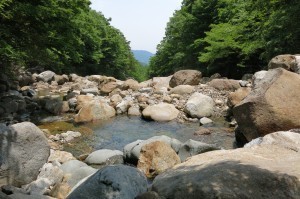
And then there was the surprise field of wishing stones…
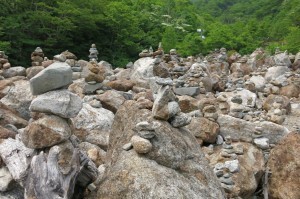
And finally, the waterfall.
Describe an interesting conversation you had with a local:
I went to the Changwon traditional market and ended up drinking coffee with the old woman who sold me a pair of $15 rain boots. We sat on the couch in her tiny shop and watched Korean TV, and she talked at me for a good half an hour. I have no idea what she was saying–something about visiting America, I think?–but smiling and nodding can go a long way in situations like this.
What do you like about where you are? Dislike?
One thing I like about Korea is its developed public transportation. Buses go right to the hiking trail heads and back all day long. Taxis aren’t too expensive, either. Hiking has become my saving grace from an otherwise overpopulated country, and fortunately, Korea is 70% mountainous. This leads me to my dislike…
Cities.
Korea has a penchant for ugly buildings. Though there are some parks, the vast majority of places to live are marked by cement buildings, gaudy neon signs, and the most offensive smells I’ve ever encountered. Stars are all but invisible thanks to light pollution, and I’ve never seen a sunset brighter than pale pastel.
Describe a challenge you faced:
In Namhae, some friends and I ventured from our pension about five kilometers to a temple on the mountain. Though the final stretch of road left us sweaty and out of breath, we were rewarded with free bibimbap (a vegetable and rice dish) at the temple to celebrate Buddha’s birthday.
What new lesson did you learn?
I learned it is absolutely possible to sleep 15 people in a two-room pension with a single bed and single bathroom.
There was some miscommunication involved with the reservation. But it made the patio barbecue and fireworks all the more fun.
Where next?
I’ll run my first-ever 10K this Saturday in Daegu. Though the hot, sticky monsoon season is fast approaching, I’m determined not to let the summer go to waste in air-conditioned buildings.
Original article can be found here: Vagabonding Field Report: Finding space in Korea, population 49 million
On Serendipity
Vagablogging :: Rolf Potts Vagabonding Blog
Serendipity is a funny thing. The mind-blowing intersections of fate and intention that lead a person down paths heretofore unconsidered is, without question, my favourite aspect of travel.
We sat, last evening, in the formal dining room of Sir James Wallace, a Knight of the Realm, so honored for his philanthropy. How did we come to be sitting there, eating off his privately commissioned silver, discussing art and opera? We picked up a hitchhiker.
In this case, a hitchhiker who turned out to be a micro-biologist and one of the most interesting travelers we’ve run across in a long while. He tossed his pack into our van and regaled us with stories of crossing China, a protein-per-penny breakdown on the nutritional value of chickpeas, and how Shakespeare and the Brownian theory related to travel. It seems he impressed Sir James as well. He’s now ensconced in the Knight’s mansion-cum-art gallery as the “artist in residence.” He’s creating a planetary mood ring on commission. I can’t tell you how, that would spoil the surprise and endanger his beautiful idea, the intersection of art and computer science.
When considering who he might share his good fortune with, he thought of us, and so we were invited to a private piano concert earlier this week, and dinner last night.
This has got me thinking:
What if we’d been afraid to pick up hitchhikers?
What if we’d have decided our van was already too full?
What if we had breezed through NZ on a tight itinerary?
What if we hadn’t hung out in Auckland this week with friends, on a whim?
What if we hadn’t traveled at all, and just stayed home?
What if Richard had not stuck out his thumb?
What if he had been unwilling to tell his story, and had just taken the ride?
What if he had not volunteered to staff the violin competition where he met the Knight?
What if he’d declined the dinner invitation that lead to his current position?
The path would have been entirely different if we’d said, “No,” to any number of tiny questions along the way.
I’m a believer that the Universe conspires to help us, but we have to give her some material to work with.
We have to be open to the possibilities.
We have to be willing to step out in faith on occasion, rather than be held back by our fears.
We have to be willing to say YES.
We have to organize our lives in such a way that fate can find us and our intention is to follow her.
Serendipity is one of the reasons we travel: in search of those unexpected, delightful connections between worlds that we would not otherwise have a door into.
Have you experienced this? Talk to me about serendipity and where it’s taken you!
Original article can be found here: On Serendipity
June 16, 2013
A journey is not a journey if you know where it will take you
Vagablogging :: Rolf Potts Vagabonding Blog
“I do not want to know where this journey ends. Otherwise, why call this action ‘journey’?”
–Matsuo Bashō, in his journal
Original article can be found here: A journey is not a journey if you know where it will take you
June 13, 2013
Wicked World releases its first digital issue
Vagablogging :: Rolf Potts Vagabonding Blog
 In the past few months, I have complained several times about the current status of travel writing and how it does not satisfy my needs.
In the past few months, I have complained several times about the current status of travel writing and how it does not satisfy my needs.
In this sense, it would have been too easy to just sit there and complain without actually doing something about it. And that’s exactly what I did by joining forces with British travel writer Tom Coote.
We sat down and worked hard to create a new digital magazine: Wicked World.
You can access it by clicking here.
Wicked World exists to promote the kind of travel related writing that wouldn’t normally find an outlet in more mainstream publications. We’re not here to sell expensive guided tours, round the world tickets or travel insurance. On the contrary, we are here to provide a showcase for honest, alternative and irreverent writing, with a particular emphasis on internationally oriented underground culture. And we of course accept related, inspired submissions from like minded travel writers and adventurers.
If you want examples, the very first issue of Wicked World has articles on: the burgeoning black metal scene in Bangladesh; the rarely visited Meroe Pyramids in Sudan; mine clearance in Cambodia; a haunting return to Vicksburg, Mississippi; the resurrection of a mummified monk in Thailand; a bizarre encounter with the police in Kyrgyzstan; System of a Down’s self-financed film about the Armenian Genocide; and a festival for hungry ghosts in Malaysia and Singapore.
In the future, we are planning to provide a syndication service for travel related articles, and to experiment with publishing the kind of eBooks that wouldn’t normally find an outlet through more mainstream publishers.
If you would like to get involved in Wicked World, or would simply like to know more, then send an email to either marco@wickedworld.net or tom@wickedworld.net
Original article can be found here: Wicked World releases its first digital issue
June 11, 2013
3 Tips for hitchhikers… from the girl who picks you up
Vagablogging :: Rolf Potts Vagabonding Blog
I don’t hitchhike too much, I have four kids and a husband, which is a prohibitive number of people for a convenient pick up. I do, however, pick up hitchhikers just about every chance I get. To me, it’s a great trade, a chance to increase my per-capita gas mileage and the entertainment is for free! Sure, it takes a certain amount of faith in humanity to pick up a stranger on the side of the road, but then again, it takes a certain amount of faith in humanity for them to take the chance and get in my car. I’ll reach across that divide if you will.
So as someone with a propensity to go out of my way to pick you up while you’re hitching, let me give you a little advice, that will increase your odds of catching a ride and sharing my chips while we drive.
1. Image matters
You don’t have to be squeaky clean (you’re traveling the hard way, after all!) You don’t have to be the picture of the boy or girl next door. You can be a bit grungy, your pack can be worn (in fact it’s a good sign if it is!) You can be tired and road worn. But remember that what I see is selling me, your image matters. Smile. Have the look of the intrepid adventurer that you are. Don’t be afraid to make me laugh with your sign or your roadside “hook.” Have an instrument, be playing it. Look like you’re going to be fun to ride with. Look like I’ll regret it if I drive on past. Be the photograph that sells your story.
2. Be flexible
Be willing to hop in the back of our camper with four kids, or tie your pack on the roof of my van. Be willing to stop and run an errand with me between point A & point B. Be willing to run to catch up if I can’t stop for another hundred yards. Be willing to go only half of the distance you want me to take you. Who knows, maybe I’ll end up taking you the whole way after all!
3. Pay for your ride
That’s right. Pay for your ride. A good hitchhiker always pays for her ride. I’m not talking about offering money, or to pay for gas, or to buy me a meal. I would never expect you to do that, but I do expect a good trade for my effort, so be thinking about what you bring to the table, or the vehicle, as it were. I’ll expect some good stories, some intelligent conversation, or a good laugh, at the very least! Some of our best hitchers have become interviews for travel stories. Others have taught the kids to juggle something, or told us new jokes, or shared recommendations for things we must see in our own travels. Don’t ever take a ride without giving something of yourself in return.
Do you hitch? What are your best hooks for getting picked up? Do you pick up? How do you decide who makes the cut?
Original article can be found here: 3 Tips for hitchhikers… from the girl who picks you up
June 10, 2013
What to do when you get sick on the road
Vagablogging :: Rolf Potts Vagabonding Blog
Getting sick while traveling is probably one of the most common fears travelers have – and for good reason. Not only does getting sick disrupt your daily itinerary, but finding a doctor can be a major challenge in certain parts of the world. Does this mean you shouldn’t travel? Absolutely not – it simply means that you should approach sickness with the same spirit of adventure as you approach the rest of your journey.
My family and I have traveled a fair bit over the past 30 years or so, and have been around the block a time or two. We’ve suffered from food poisoning, limped on sprained ankles, traveled with casts (and waited out part of a journey due to a cast), and been evacuated by air ambulance due to a heart condition. I guess you could say we’ve tested the medical care in many countries around the globe – and we’re still traveling.
So what do we do when we get sick? That’s a hard question to answer. There have been many times on our journeys when we faced sickness or injury, and there is no doubt we will face it many more times in adventures to come. What we do depends on many factors – where we are, the availability of medical care or medications, the seriousness of the injury, and our itinerary.
Wait it out? Or get thee to the doc?
Many times we had to make a decision – was it bad enough to go to the doctor? Or should we just wait it out. Stomach problems generally fit into this category. Our typical approach is to wait it out for three or four days and, if it’s not better by then, we start looking for a clinic. That amount of time generally gives our body time to fight whatever is causing the problem. If we’re still sick after that, it’s time to consider drugs. Muscle strains usually fit into this category as well. We wait a few days to see if it is getting better – if not, we get to the doc to get it checked out.
These are the easy problems to deal with in that you have time to think, time to ask around, time to consider your options, and time to get into a city with good facilities. Ask your hotel staff where a doctor is, and jump in a taxi – chances are there is some sort of clinic in your area that can deal with minor disturbances.
Quick! Where’s the doc?
On the other hand, there are times when you know you need medical care – an acute ear infection, a rapidly swelling wrist, a foot that can bear no weight whatsoever… These are the challenging situations we all fear. Can I trust the doctor to set a broken bone? Will he give me the right medication?
We have found that, in these situations, the local people know best. They deal with medical situations in their communities all the time, and know exactly where to go. We’ve also found that doctors tend to know their limits and will send you on to someone else if they are not capable of dealing with your problem.
When I severely screwed up my foot falling down some old stone steps in northern Vietnam, everyone told me I needed to get to Hanoi twelve hours away for x-rays. We hired a taxi, I sat in the back with my foot propped up on pillows, and we made our way to the hospital in Hanoi.
When my son woke up one morning in Mexico with an excruciating earache, we were able to find a clinic a few blocks from our hotel. Another day, my other son fell and sprained his wrist, which led to a journey to a hospital 75 miles away. Each situation is different, and each one will require a different course of action. Just remember – it’s all a part of the adventure.
Now what? This is serious!
What about those times when your life is in danger? When something goes terribly, horribly wrong and you hover on the edge of death? Although we don’t want to think about it, we all know it could happen. That’s why it is imperative that you have evacuation insurance.
If you find yourself in countries with limited health care, you may very well need to be evacuated. It’s easy to fall into the trap of thinking, “I’m young and healthy – nothing will happen to me.” And yet, you just never know. One minute all is well, the next you’re in trouble.
We were living in Ethiopia when my husband’s heart suddenly went into arrhythmia. We had gone for an 80-mile bike ride and forgot our water bottles. I stopped at every little café to buy water; he took off to get in a good training ride. Apparently, the exertion, altitude, and dehydration all worked against him to send his heart into an irregular beating pattern.
The good news is that the doctors in Ethiopia recognized the problem right away, and they also recognized that they were not in a position to deal with it. That’s when our evacuation insurance came in very handy.
Within minutes of my phone call to the agency, they were on top of the situation and making arrangements. As soon as possible, a plane left Israel to pick my husband up in Ethiopia and take him to an Israeli hospital. The bad news, however, is that the air ambulance came with a price tag of $90,000. That’s why you want to pay those few bucks whenever you travel!
So what’s the bottom line?
There is no one answer to the question, “What do I do if I get sick or injured while traveling.” Just take it all one day at a time and make the best decision you can at the time. It’s all just a part of the adventure!
Original article can be found here: What to do when you get sick on the road
Rolf Potts's Blog
- Rolf Potts's profile
- 323 followers



